Personal is Political: How Toni Cade Bambara Saved Me
By Guest Contributor on November 28, 2014By Imani Uzuri
I was a heading into my sophomore year in undergrad, and took my first Women’s Studies class during that Summer. After a full year of beginning to be politicized around my Blackness, I was beginning to understand myself within a Feminist Womanist context.
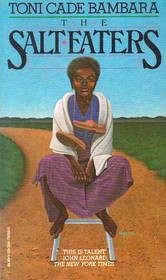 The teacher of the class was a cool young white woman grad student, but she had NO books by or about Black women or other women of color on the reading list, and I was appalled. I complained to her, and she pointed my attention to the one lonely book by a Black woman, Toni Cade Bambara’s The Salt Eaters. The first line in the book has been a question that has stayed with me for most of my adult life, “Are you sure, sweetheart, that you want to be well?”
The teacher of the class was a cool young white woman grad student, but she had NO books by or about Black women or other women of color on the reading list, and I was appalled. I complained to her, and she pointed my attention to the one lonely book by a Black woman, Toni Cade Bambara’s The Salt Eaters. The first line in the book has been a question that has stayed with me for most of my adult life, “Are you sure, sweetheart, that you want to be well?”
The circular nature of the novel was brilliant and difficult. Memory within a memory and dealing with women’s work within the 60s/70s Black radical movement and also what it means to seek to be free from societal and self-imposed constraints of Blackness, Womaness, Selfness etc.
The main character Velma was emotionally, psychologically, spiritually and psychically bereft, and I related, because I was on the verge of my own dangerous burnout as a political activist on my mid-western campus. Racism was immersively rampant, and as an outspoken woman student leader, I was confronted with my own share of dismissiveness by some folks. I was tired and a workaholic, and at the time, had no idea on what it meant to balance.
I found myself waking up to the world around me due to reading Malcolm X, Fannie Lou Hammer, Ntozake Shange, and others. I had not quite begun to explore my sexuality as a Black queer (bisexual) woman, but this time in my life was an important doorway for me to begin that journey. The woman healer(s) in The Salt Eaters, these mystics, were not unlike women in my family, not unlike myself possessing sight beyond eyesight. The book opened my heart, mind and soul to a million questions, its themes deeply cracked my framework of who I thought I was.
I spent the rest of that Summer after the class ended angst-ridden about the uncomfortable space reading The Salt Eaters had opened up for me. I was swirling in a shroud of fear, because I was awakening. I was coming to terms with parts of my sexuality; I was exploring what it would mean to call God she instead of he (which was in direct opposition to my patriarchal Christian upbringing); I was on the verge of a difficult rebirthing of myself.
I spent many stolen hours crying in a quiet gazebo meditating on the wide sky and trying to understand who I was becoming, trying to understand how I was changing.
The questions cascaded over me, Who are you? Do you want to be whole?
Are you willing to be broken apart, separated from old narratives of who the world says you are and who you think you are?
I sat in that gazebo feeling afraid, isolated and scared, looking out over the woods with all of these thoughts swirling in my spirit.
And then Toni Cade Bambara’s question came down to me again like a cleansing breeze from beyond, “Are you sure, sweetheart, that you want to be well?” and with a deep breath of clarity, understanding and knowing my answer was and still is a resounding yes.
Praised in the New York Times for her “gorgeously chesty ruminations,” vocalist, composer, cultural worker Imani Uzuri is an eclectic interdisciplinary artist who travels internationally to diverse locales, such as Morocco and Moscow, creating concerts, experimental theater, performance art, theater compositions, and sound installations in venues/festivals, including Central Park SummerStage, Joe’s Pub, The Kitchen, Blue Note Jazz Club, Whitney Museum, Lincoln Center, Performa Biennial, Festival Sons d’hiver, London’s ICA, and the Museum of Modern Art (MoMA). The Village Voice says, “With a voice that would sound equally at home on an opera stage or a disco 12-inch, Imani Uzuri is a constant surprise…seamlessly combining jazz, classical, country and blues motifs into highly personalized compositions.” Uzuri has collaborated with a wide range of noted artists across various artistic disciplines, including Herbie Hancock, Wangechi Mutu, John Legend, Vijay Iyer, Carrie Mae Weems, Trajal Harrell, Sanford Biggers, and Robert Ashley. Her television credits include a featured commercial on BET for their Black History Month campaign and the Late Night with Jimmy Fallon show performing with Talib Kweli, Hi Tek and The Roots. New York Magazine has called her work “stunning.” Her acclaimed new album The Gypsy Diaries draws on her rural Southern roots, as well as influences ranging from Sufi devotionals to Romany laments. Uzuri is currently composing a new musical GIRL Shakes Lose Her Skin, inspired by the works of Philadelphia Poet Laureate Sonia Sanchez. Recently, Uzuri premiered her first orchestral composition Placeless at Ecstatic Music Festival, and was subsequently named by The New Yorker as one of the emerging “female composers edg[ing] forward.” Time Out New York says, “Uzuri never fails to mesmerize with her narcotic blend of ethereal sounds.” Uzuri is currently a Master’s candidate in African American Studies at Columbia University. To learn more, please visit her website: www.imaniuzuri.com.
You may also like...
3 Comments
All Content ©2016 The Feminist Wire All Rights Reserved

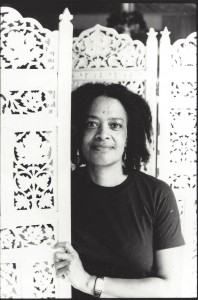
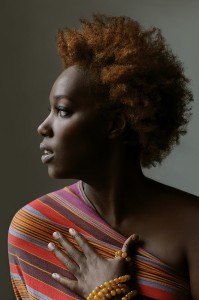
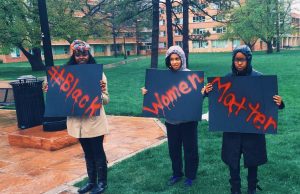
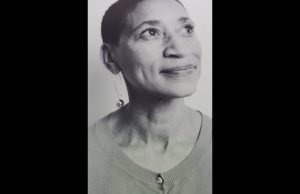

Pingback: Afterword: Toni Cade Bambara's Living Legacy - The Feminist Wire | The Feminist Wire